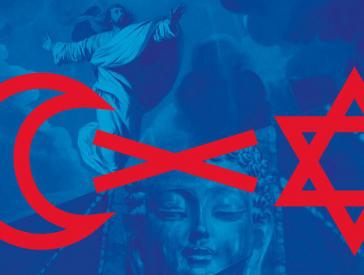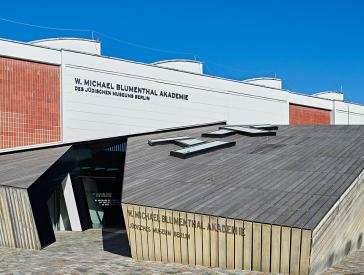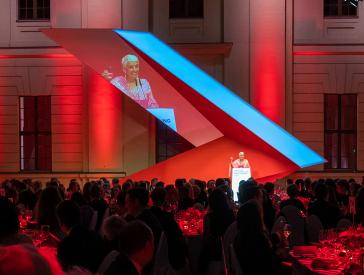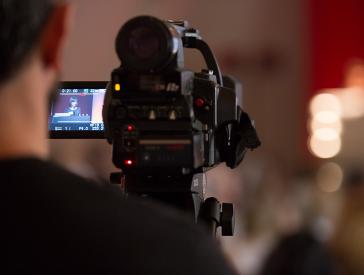How Much God Is in the Holy Scriptures?
Lecture Series: Science and Faith in Judaism and Islam (video recording available, in English and German)
For devout Jews and Muslims, the Torah and the Quran are holy scriptures that contain God’s word or were divinely inspired.
The method of historical criticism in research has made it possible to explain the origins of both scriptures as arising from their specific historical context. For example, the decoding of ancient Middle Eastern texts has shown the roots of many biblical and Quranic themes in ancient traditions, which is often seen as a challenge to the doctrine of holy scripture’s divine origins.
recording available

Where
W. M. Blumenthal Academy,
Klaus Mangold Auditorium
Fromet-und-Moses-Mendelssohn-Platz 1, 10969 Berlin
(Opposite the Museum)
How can Judaism and Islam interpret divine revelation today? Are historical textual research and religious convictions compatible?
A discussion between Benjamin Sommer and Ghassan el Masri. Moderator: Dr. Kathrin Klausing (Institute for Islamic Theology, Osnabrück University).
Video recording of the lecture Science in the Light of Faith on 5 March 2019, in English and German; Jewish Museum Berlin 2019
Benjamin Sommer
Benjamin D. Sommer is Professor of Bible at the Jewish Theological Seminary. His publications include Revelation and Authority: Sinai in Jewish Scripture and Tradition, which deals with the concept of divine revelation in the Bible and in modern Jewish theology.
Ghassan el Masri
Born in Beirut, Ghassan el Masri studied Philosophy and Arabic Studies at the American University of Beirut and at the Free University Berlin and has been involved in several research projects at the Corpus Coranicum of the Berlin-Brandenburg Academy of Sciences and Humanities. His research focus is the Koran in the context of the Arabic literature of its time.
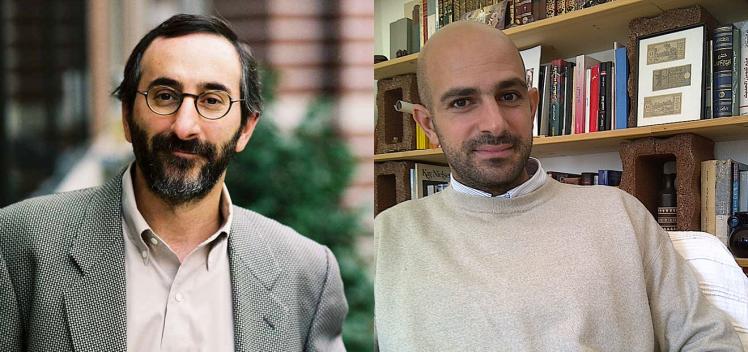
Benjamin Sommer and Ghassan el Masri; photos: private/private
About the Lecture Series
Scientific discoveries in astronomy, geology, and biology over the past centuries have called into question the centrality of humans as the “crown of creation.” Today, religious and scientific positions are often seen as irreconcilable. While some present religions as incompatible with a modern worldview, others demand that creationism be giving equal billing in school as an alternative to the theory of evolution. In the past, this conflicting relationship between religion and science was hardly the rule. Many theologists were also scientists and made significant contributions to our understanding of humanity and the surrounding world.
This lecture series sets out to explore the tensions and affinities between Judaism, Islam, and the sciences. It aims to supplement the narrative of conflict with other narratives. To that end, the lecture series delves into subjects such as evolution and creation, belief in miracles, biological determinism and free will, historicist critical analysis of sacred texts, and how Jewish and Muslim religious educators approach the sciences.
Lecture Series 2018/19: Science and Faith in Judaism and Islam (5)



 X
X

